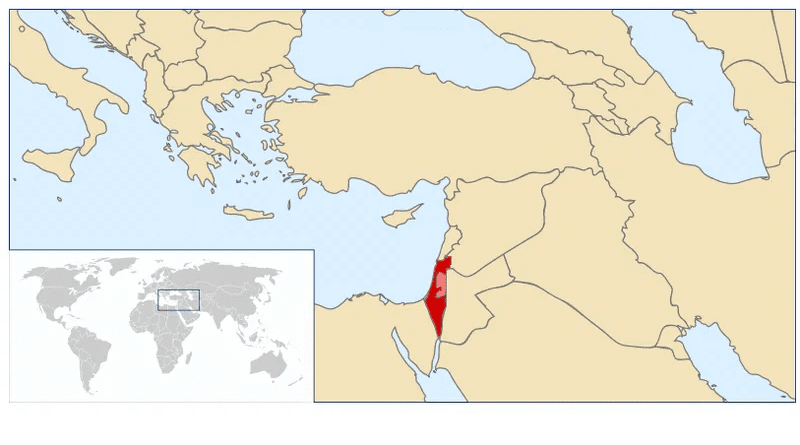Land Day Marked By Demonstrations Inside Palestine And Abroad – OpEd
By MIFTAH
On March 30, protesters throughout Palestine and neighboring countries commemorated six Palestinians who were killed by Israeli forces in 1976 in demonstrations against Israel’s land confiscations in the Galilee, a day since remembered as ‘Land Day.’ Clashes with Israeli forces erupted at checkpoints and borders in the West Bank and Gaza Strip as thousands of people called for a ‘Global March to Jerusalem’.
A 20-year old man, Mohamed Zakout, was shot dead in the northern Gaza Strip as Israeli soldiers open fire at protesters marching to the Israeli border. Here, near the Erez crossing, another 31 Palestinians were wounded and taken to the hospital; three of these were critically injured. Medics said the Israeli army used live fire to prevent protesters from approaching frontier barriers.
Meanwhile in Bethlehem a young Palestinian protester was seriously injured after being hit in the head with a teargas canister. From the demonstrations on the Bethlehem-Jerusalem border, 11 people were hospitalized.
At Qalandia checkpoint near Ramallah, where the largest rally took place, Israeli forces fired tear gas, stun grenades, sprayed foul-smelling water and used a “scream” acoustic device against demonstrators. Red Crescent spokesman Muhammad Ayyad told Ma’an that medics treated 249 protesters at Qalandia and 20 were transferred to the hospital. Israeli forces injured nine medics and damaged three ambulances at the protest. All in all, the Palestinian Red Crescent treated 339 protesters in the West Bank on this day.
In Jerusalem, Israeli forces detained 14 people in similar demonstrations; among the detainees was Palestinian Authority Minister for Jerusalem Affairs Hatem Abdul Qader, who after his release several hours later said he and the other detainees had been beaten by Israeli officers while in detention. A Red Crescent supervisor in Jerusalem reported six injuries; two of them injured by a riot policeman’s horse were serious.
Protest organizers called for peaceful rallies in commemoration of Land Day and against “the policies and practices of the racist Zionist state”. According to the organizers solidarity protests were planned in some 80 countries around the world. In Jordan, over 15,000 people gathered near the border with the West Bank in a peaceful protest.
In other news, Palestinian prisoner Hana Shalabi who has been on a hunger strike for 43 days ended this strike on March 29, after reaching an agreement with Israeli authorities. One of around 300 Palestinian prisoners held in Israeli prisons under administrative detention, Shalabi used her hunger strike as a way of protesting against both her detention without charge and against the violence she was subjected to during her arrest. Her release, however, will not be to her home in the West Bank village of Burqin, but to the Gaza Strip, where she will be exiled to for three years before she can return home.
The Palestinian Authority’s prisoners’ ministry is preparing to ask a UN meeting to force an end to Israel’s detention of Palestinians without charge. Minister of Prisoners’ Affairs Issa Qaraqe announced on March 26 that the PA is launching a legal campaign for a UN meeting on Palestinian prisoners in Israeli prisons in Geneva starting next Monday. Officials will ask the meeting to end Israel’s policy of administrative detention, which allows the country to hold prisoners for renewable terms of six months without pressing charges.
Last week, the UN Human Rights Council voted to launch an international investigation into Israeli settlements, causing Israel to cut all contact and has told its envoy in Geneva not to cooperate with the council or the UN Human Rights Commissioner. It will also prevent a UN team entering Israel to assess the effects of settlements on Palestinian rights.
President Mahmoud Abbas announced on March 29 that the reconciliation deal between his party Fatah and Hamas has broken down. In February Abbas and Hamas chief Mashaal met in Qatar where they agreed on the outlines for a new, united Palestinian government. But according to the President some Hamas leaders have now rejected the agreement reached at the time. There has been a recent escalation of political detentions between Hamas and Fatah, who have been holding closed-door talks to resume the stalled reconciliation deal. There is said to have been some success in resolving the problem of people in Gaza being denied passports, but the most complicated issues are imprisonment and firing of public servants based on political affiliation.
During the Arab Summit in Baghdad held on March 29, President Abbas appealed to Arab leaders to abide by their financial commitments to the Palestinian Authority and calling on them to put Jerusalem back at the top of their priority list. Abbas reminded the leaders of the $500 million they pledged at the last Arab summit, which he said the Palestinians “had seen nothing of yet.”
Overnight Wednesday, March 28, dozens of residents from the Jewish settlement in Hebron occupied a three story house in a Palestinian neighborhood located about 100 meters south of the Ibrahimi Mosque. The group of extremist Israeli settlers claims it holds documents validating their claim to the building.
On March 27 Palestinian medical sources reported that an 18-year old Palestinian boy was shot in the leg by an Israeli settler in the old city of Hebron when he was attacked by a group of armed settlers. His condition was described as moderate due to significant blood loss. On the same day, three brothers were wounded during an Israeli military invasion into Rammoun village near Ramallah. One Israeli soldier was wounded during the invasion.
Also on Tuesday, March 27, at dawn, Israeli soldiers invaded the West Bank districts of Bethlehem and Hebron, broke into and searched several homes and kidnapped five residents, taking them to unknown destinations. These are just examples of several similar incidents that happened in the West Bank the previous week.

